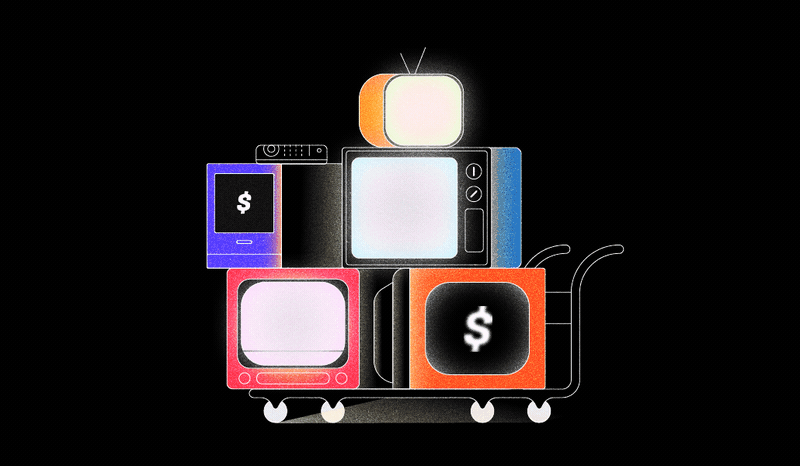Secure your place at the Digiday Media Buying Summit in Nashville, March 2-4
The Trade Desk and Yahoo are locked in a trading dispute with a looming deadline

The Trade Desk and Yahoo are entering the eleventh hour of crisis talks concerning how the latter labels its media inventory in a dispute that could result in the former party cutting advertisers’ access to Yahoo’s video content.
The industry’s largest independent demand-side platform began notifying media buying teams of such concerns and stating that it would cut open marketplace access to Yahoo’s video inventory if the issue were not resolved by June 17.
Furthermore, if the dispute runs beyond the initial deadline, it will further disable access to all of Yahoo’s video inventory, including via private marketplace deals, on July 1, according to emails reviewed and verified by Digiday.
At the core of the dispute are concerns over Yahoo’s declaration of its video advertising inventory as in-stream when sold via open marketplaces, with the DSP claiming its practices are not in accordance with the latest industry standards.
Digiday understands the DSP’s marketplace quality team disagrees with Yahoo’s approach to labeling in-stream ad inventory; rather, they interpret its definition as more akin to “accompanying content”— ad inventory that is less desirable for media buyers–under the latest guidelines.
Meanwhile, executives on the opposite side of the negotiating table maintain that The Trade Desk’s interpretation of the latest standards is overly restrictive, despite this delta, both parties’ expressed an ongoing desire to reach an agreement.
“We continue to work with our publishing partners to adhere to industry standards. After informing clients we would be blocking incorrectly declared inventory, we are re-engaging in discussions with Yahoo and expect the inventory to correctly be declared soon,” read a statement shared with Digiday by a spokesperson from The Trade Desk.
A separate media executive familiar with the developments, who declined to be named given their employer’s PR policies, told Digiday, “The Trade Desk’s decision to confront Yahoo over the misdeclaration issue underscores their dedication to ensuring a transparent and fair marketplace for all media buyers. By taking firm action, they are safeguarding the interests of their clients and setting a standard for the kind of accountability and ethical practices that are essential in the digital advertising landscape.”
Meanwhile, a separate statement shared with Digiday by Erin Miller, vp, corporate comms at Yahoo, noted its support for the latest IAB definition for video placement declaration, adding that it has worked extensively with demand partners as part of its testing of the latest standards.
“It is important to note that [The Trade Desk’s] TTD’s interpretation of the IAB Tech Lab’s definitions for video inventory does not align with the broader industry consensus, which includes industry leaders like Google,” it read. “Our approach has been to align with the emerging industry standard, which we believe best serves the interests of our users and partners.”
The statement continued, “We’ve been testing solutions based on TTD’s interpretation, but those have consistently performed sub-optimally. Nonetheless, we’ve been working with them over the last few months to find a solution.”
Yahoo’s statement further noted that it will not implement any changes at The Trade Desk’s behest until “we are 100% confident that it is the right solution and aligns with our own standards.”
Talks between the pair continue ahead of the June 17 deadline, which coincides with the beginning of the advertising industry’s marquee trade conference, the Cannes Lions Festival of Creativity, where such disputes will likely be debated widely.
More in Media

From feeds to streets: How mega influencer Haley Baylee is diversifying beyond platform algorithms
Kalil is partnering with LinkNYC to take her social media content into the real world and the streets of NYC.

‘A brand trip’: How the creator economy showed up at this year’s Super Bowl
Super Bowl 2026 had more on-the-ground brand activations and creator participation than ever, showcasing how it’s become a massive IRL moment for the creator economy.

Media Briefing: Turning scraped content into paid assets — Amazon and Microsoft build AI marketplaces
Amazon plans an AI content marketplace to join Microsoft’s efforts and pay publishers — but it relies on AI com stop scraping for free.





